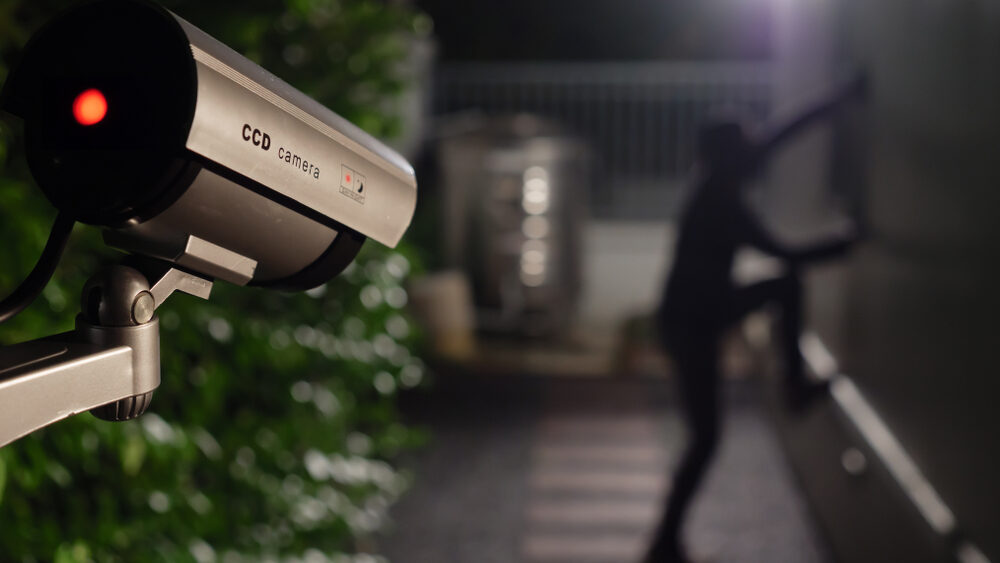End Defense Attorney
December 22, 2022

I had to upgrade my computer last year. I went to the most powerful Mac Pro available, and added an external four terabytes. I didn’t have a choice but to spend the money. I needed the video editing capabilities that only a monster processor and memory would provide.
Thanks to technology, the time is fast approaching when the role of defense attorney and prosecutor will be changed beyond recognition. Everything is being recorded – both by private individuals and government agencies. At least half my cases have some video provided to me in discovery. Some of these videos involve witness or client interviews. However, more and more are videos of the event that make up the root of the crime.
Video Recording Is Everywhere
Already most of Houston’s streets are recorded in some way. Next time you stop at a red light, take a look upward. You will see cameras on every pole. Transtar cameras are installed on every mile of our highways. Almost all businesses have digital videos installed somewhere. Every cell phone is a video camera. These ever-present digital video recording devices are multiplying rapidly. I recently saw a television commercial pitching a dash cam for personal automobiles!
Cops have been doing this for some time, of course. Dash cam videos have been shown on television shows since the 80’s. However, the digitizing of video and the miniaturization of the camera has resulted in a vast proliferation in the number of videos taken. I would estimate that already a third of street cops use body cams in their investigations. This is going to explode. The City of Houston counsel is debating how best to outfit all police officers with these cams and it seems that the only sticking point is the cost of the equipment and storage. It is only a matter of time when every action performed by a police officer, and every interaction with a suspect will be recorded.
Just as important, the quality of the video and audio will be excellent. I remember the first case I tried when I left the District Attorney’s office. I was appointed to an Aggravated Robbery case. My client claimed innocence, but the prosecutor had a video of the robbery. It showed a man who looked like my client walk up to a counter and pull out a gun. It was recorded on a VCR and the quality was about what you would expect with that technology. The prosecutor wrapped her case around the video. During closing argument, I simply told the jury that they couldn’t convict my client unless they could say without question that the man in the video was my client. They couldn’t, and my client was acquitted. That probably wouldn’t happen today. Video is now crisp, clear and printable for the jury to take back for their deliberations.
What Can A Defense Attorney Do If There Is Video Evidence In Court?
So what is left to argue in a case when the whole drama is played out for the jury like a movie? If a picture is worth a thousand words, what are a billion pixels worth? What is left to say? Much, actually.
Although the facts may not always be in dispute, everything else in a client’s representation is still in play. The harsh reality is that the resolution of a particular individual’s criminal case depends on the quality of the advocate on his behalf. Punishment varies in every criminal case. It is up to a person’s lawyer to provide the frame to a picture being presented to the prosecution. The questions “What?” or “How?” may be fully answered by the video presented to the prosecution. However, the answer to the question “Why?” may ultimately determine what happens to the accused in court.
When Guilt Is Beyond Doubt, The Intent Is Now Most Important
I had a case recently where my client is recorded running from the police. He jumped in his car and took off, after some brief questioning from the officer. A short chase in the car resulted, and then the video showed my client jumping out of the car and running on foot, when he was eventually apprehended. He was shown in the driver’s seat the whole time. Quite obviously my client committed the offense of Evading in a Motor Vehicle. The whole thing was played out on video. My client had some criminal record, so the prosecution offered him State Jail time.
What was important to me about the case wasn’t that he had committed the offense – that was clear. I wanted to know why he had run? They found no drugs or illicit material in the car. No stolen property. My client had no record. He had no warrants for his arrest. When I spoke with him about that issue, he told me about the other times he had been arrested and charged. He told me that he was often stopped by police officers. (He is a young, black man.) He said that on one of those stops, the police officer pulled out a crack pipe and claimed that he had thrown it to the ground when he was approached. He told me that he had not committed that offense, but pled that case out because he had been offered a chance to get out of jail. He told me more, but the basic tenant of his argument was the same. He just didn’t trust police officers, so he ran.
Now, my client’s reasoning was not a defense under the Texas Penal Code. There is no way I would have been able to get the prosecutor to feel the distrust my client felt about police officers. However, I was able to focus the prosecution’s attention on the lack of motive. I pointed out that if my client had simply stood and answered the police officers questions, he would have been released and not be facing any jail whatsoever. I pointed out that the actions by my client had to be based on an irrational fear, and not motivated by some desire to commit a crime. I asked rhetorically if a felony conviction was the appropriate punishment for someone who only endeavored to hurt himself by his actions?
Things worked out for my client on that occasion. However, it wasn’t because anybody had a question about his guilt. Advocacy will always have a place in our criminal justice system, but the times – they are a changing. I am interested in finding out how far all of this will go. Will this work both ways? Is it possible that there will come a point in time when a successful jury argument will be, “If my client is so guilty, why didn’t the prosecution provide you the video?”
























Reviews Matter
★
★
★
★
★
★
★
★
★
★
★
★
★
★
★
★
★
★
★
★
